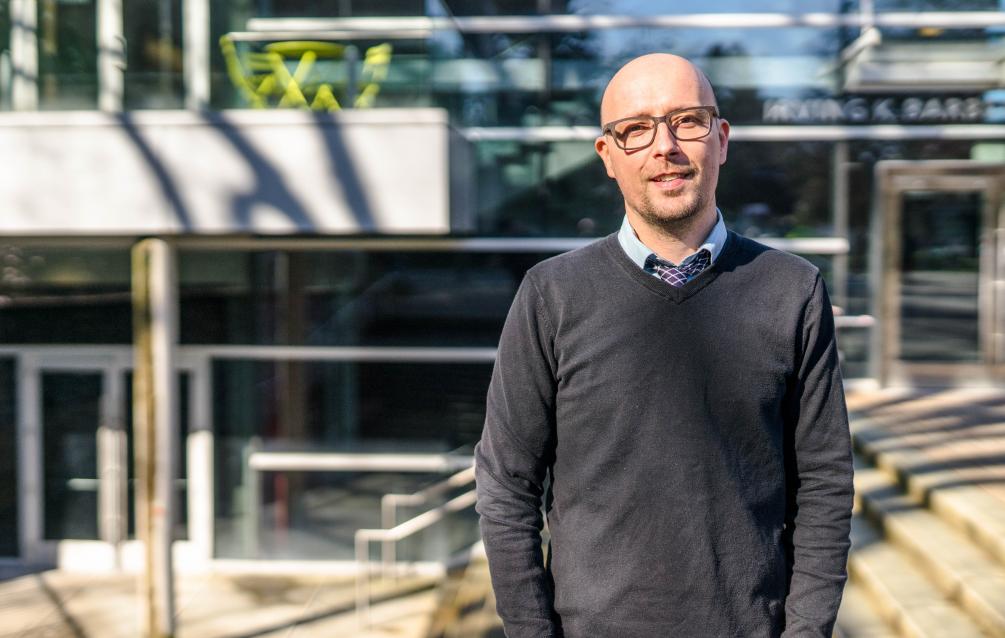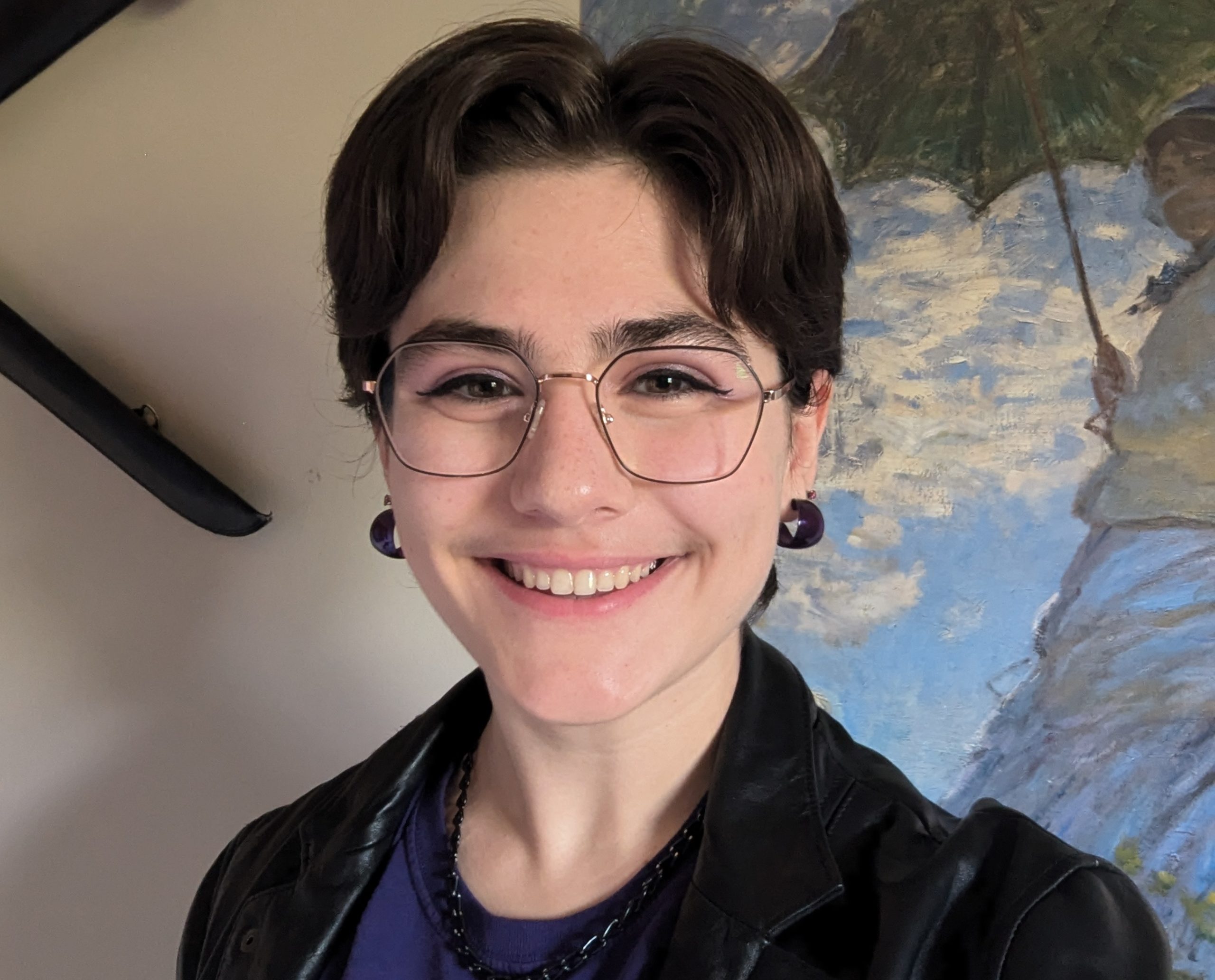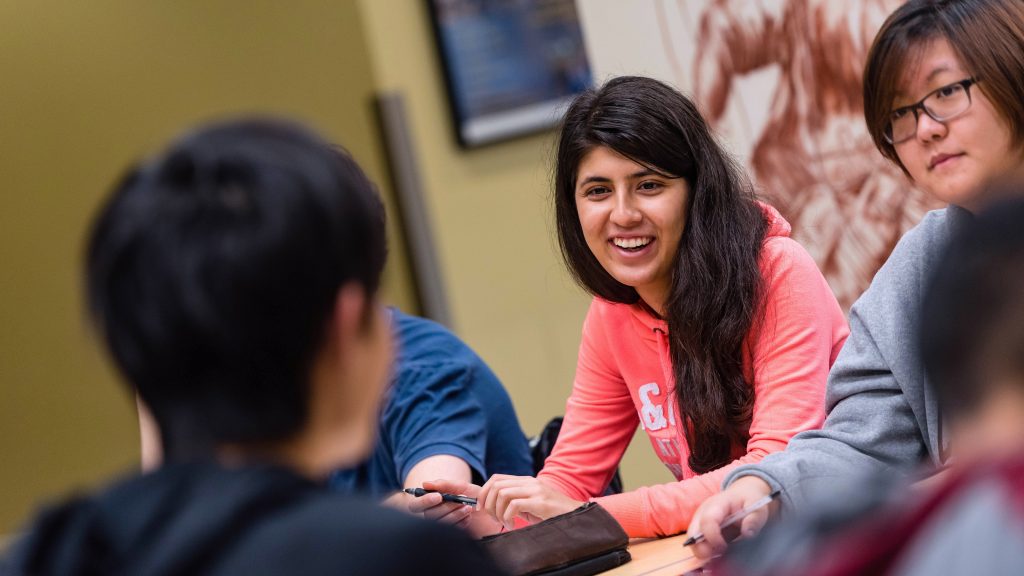

The Arts One program is composed of a team of dedicated instructors who help facilitate a positive and encouraging transition into university for first-year students. This interview series helps both current and prospective Arts One students get to know individual instructors on the teaching team. Whether you are an incoming first-year student who is still deciding which Arts One seminar to take, or a current Arts One student who wants to know more about the professors in your stream, this series is for you.
In this instalment, we interviewed Dr. Gavin Paul (English). He discusses his research on Shakespeare and McCarthy, and reflects on how inspiring and rewarding it is to be on the Arts One teaching team. Dr. Paul also highlights the uniqueness of Arts One as a year-long first-year program that emphasizes small-cohort learning, as well as the program’s role in helping students develop critical thinking skills.
Can you tell us a little about yourself? When did you come to UBC? How long have you been teaching in Arts One? Etc.
I did my undergraduate work at the University of Lethbridge—I have a BA in English, and Bachelor’s degree in Business Management (with a major in Accounting). That’s right, there was a period of life when I was seriously thinking of becoming an accountant.
But my heart was always with literature. I eventually came to my senses and did my Master’s degree and my PhD in the English Department at UBC, and I have been teaching in the Arts One program since 2010. It’s strange to type that out—it sounds like a long time!
I understand that your research interests focus on Shakespeare and early modern drama. Could you tell us more about your fascinating research, and how you became interested in these topics?
My work on Shakespeare focuses on editorial theory, specifically how editors of the plays we read allow readers to imaginatively engage with performance potential and performance history. Reading a play is so different than reading a novel, or short story, or a poem. A play demands a very different kind of imaginative engagement, and I am interested in how different printed versions of plays might foster—or perhaps hinder—the navigations between page and stage.
I am also interested in the work of Cormac McCarthy and I am starting to break ground on some research projects related to the representation of memory in his fiction.
What made you decide to join the Arts One teaching team?
I lucked into a position many years ago and fell in love with the program. It is so rewarding that I’ve never wanted to leave.
In your opinion, what makes the program unique?
It is genuinely inspiring to work on a day to day basis with young, energetic, brilliant people. Most every student in Arts One *wants* to be there, wants to work hard, wants to get better at reading, writing, and critical thinking. I never feel like I have to work to entertain Arts One students, or work to keep them interested.
I also have to pinch myself because I get to work with world-class scholars every day, see them lecture on mind-expanding books, see the way they interact with students. My generous colleagues have introduced me to so many texts that I likely wouldn’t have otherwise encountered.
And our reading list is always ridiculously good. Who wouldn’t want to study all of these amazing books?
During your time teaching in Arts One so far, which theme(s) (whether it’s the current Sources of the Self, or past themes) have stood out to you the most?
I have fond memories of “Dangerous Questions, Forbidden Knowledge.” And “Hero/Anti-Hero” was also a lot of fun. I have an interest in graphic novels and I was able to get Watchmen on the reading list for both of those themes.
One of the features of Arts One is that you guide students through a text that you may never have encountered before, or at least haven’t engaged with in many years. Is there such a text on last year’s reading list that was especially rewarding to work on?
Reading Gandhi’s Hind Swaraj was a real highlight for me. I had never read it before and I found it enlightening in a number of ways. It connected to so many things on our reading list and raised many important questions. We had a lot of productive discussion on that text. Rousseau’s Discourse on Inequality is also a favourite of mine; it’s a book that has so much to say to our current moment.
What would you tell a student considering Arts One, but who hasn’t yet decided?
There is really nothing else like it at UBC. As a first-year student you will get to work with a small cohort for an entire year. As a group we read challenging texts, discuss the provocative questions they raise, and work to develop our critical thinking skills. I can’t think of more valuable skills to develop. It’s a year-long conversation between curious people. The program represents everything that a university should aspire to be.


